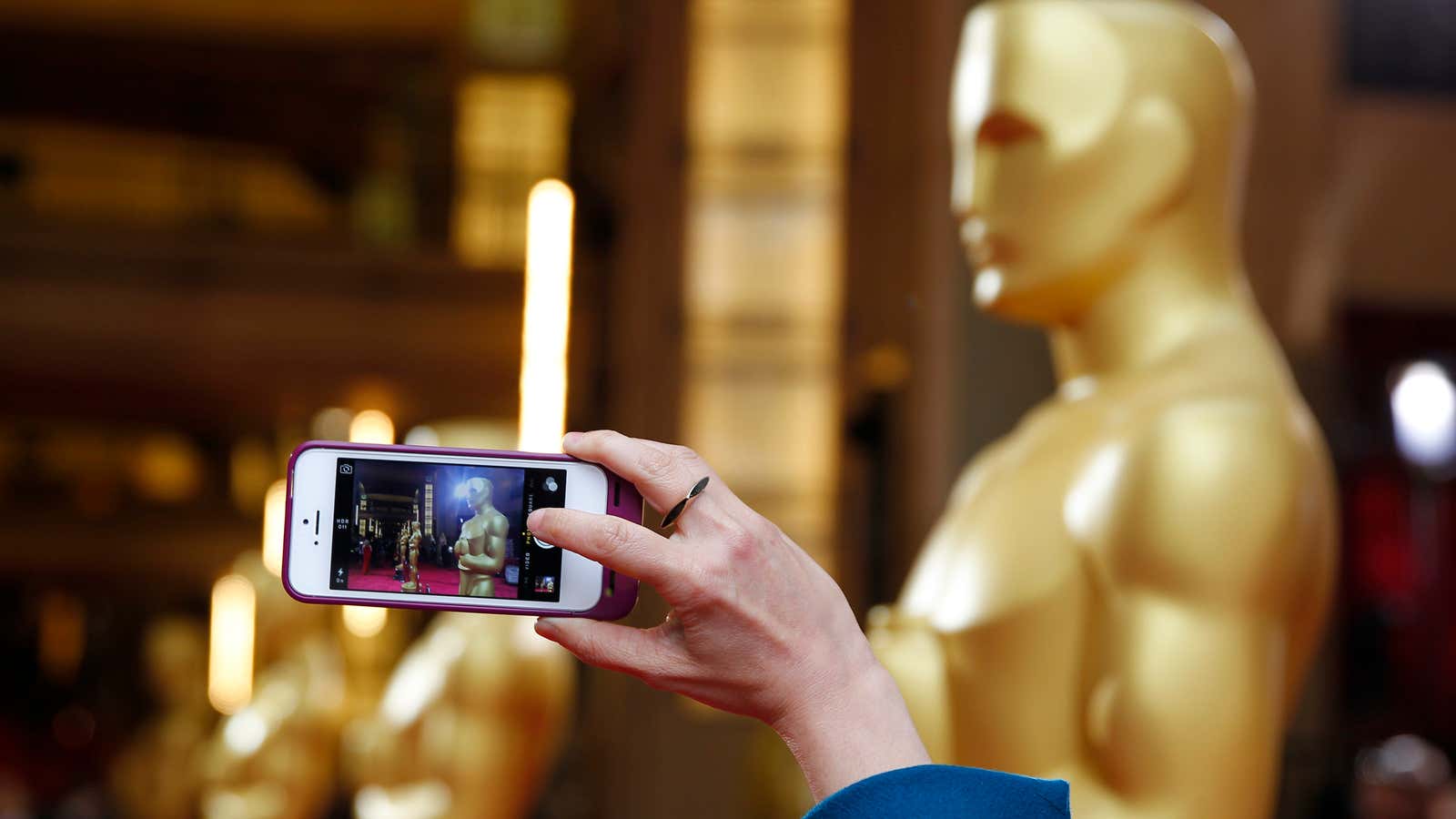Shiny and bright is the future of Netflix right now. The video streaming service took a bet on original television programming that has paid off in spades: Sci-fi adventure Stranger Things dominated water-cooler talk last summer, royal drama The Crown snagged top awards at the Golden Globes, and critics are keenly eyeing what’s next.
Now Apple—a recent expert at copycat moves—wants in on that success.
In 2017, the tech giant will make a “significant” foray into original TV shows and movies, the Wall Street Journal reported today (paywall). Sources say Apple has been in talks with veteran Hollywood producers for months, aiming to put out high-quality original content—think Stranger Things, or HBO’s Westworld—by the end of the year.
But here’s what’s odd: Rather than making its original programming a standalone product, Apple will offer the content exclusively through Apple Music, its $10-a-month music-streaming service. As the company’s growth slows, Apple CEO Tim Cook seems to think bolstering Apple Music offerings will attract more users. It’s not the worst bet—Apple Music amassed 20 million subscribers in its first year of existence—but it means the company is missing out on a major opportunity for innovation.
While the market for original scripted content is quite saturated—Netflix, Hulu, and Amazon Prime are all big players—the market for original films and other less-abundant video formats remains almost unexplored. Apple’s longstanding ties to Hollywood (dating back to the glory days of iTunes movie rentals) could have made for an ambitious project to revitalize the sluggish movie industry, with perhaps an entirely new style of video-streaming, or a game-changing pricing model. Among Apple’s more successful videos so far, for example, was an exclusive documentary of Taylor Swift’s 1989 world tour, a lengthy one-shot that Netflix and its ilk don’t seem interested in pursuing at the moment.
Instead, Apple seems to be approaching video half-heartedly, as a mere add-on to one small part of its massive operations.
Historically, Apple products have either solved a problem for consumers, or introduced them to some insanely useful tool they didn’t know they needed (see: the Macintosh, the iTunes store, the release of the iPhone into a sleepy 2007 mobile tech market). Post-Jobs, the company has has struggled to maintain that momentum. By tacking video onto Apple Music and shying away from, say, the creation of “Apple Entertainment,” it seems Apple is resigning itself to a different future—one that leaves its reputation for innovation in the past.
